Everyone's a Hero
It happens to me all the time.
I’m reading a book or watching a movie or TV show, and a random somebody walks into the room. Maybe he stays there a minute, maybe he stays there 30. Maybe he has ten lines, maybe he has zero. Maybe he’s only in the background, standing around unobtrusively while the main characters are having a huge argument.
And suddenly I fall in love.
Someone who the author/director never gave a second thought just became my favourite character!!
Today I’m going to talk about how everyone’s a hero, and I’ll probably digress a lot and go on a whole bunch of rabbit trails and generally take a long time to get to the point, so be prepared, and bear with me.
To start out with though, let’s do what I love to do when it comes to writing. Let’s take a look at real life.
Your life is a story. It’s got a plot, a message, dialogue, setting, and characters. You’re the main character. And unless you’re super messed up and have huge insecurity issues, you’re the hero of the particular story that is your life.
Now think about everyone else’s life. This may be difficult and may make your head ache, but step out of your brain and into someone else’s. Everybody has a story that only he’s reading, and he’s the main character of that story. Usually the hero.
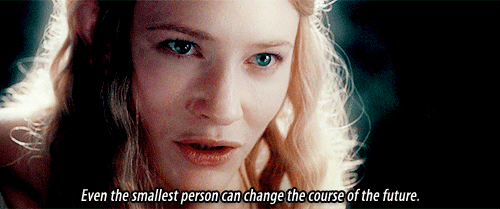 |
| Their own future, definitely. |
So we’re talking about writing. You’re a writer (I’m assuming), and you’ve written a story. You’ve got a plot, a message, dialogue, setting, and characters (oooh, those lovely characters). Now you’re probably spending a lot of time thinking and planning about those couple amazing main characters. You’ve got character maps, character questionnaires, and pictures of your characters on Pinterest (maybe you even drew them).
If you’re like me, you’ve also spent a lot of time squealing and thinking and crying over several of your favourite secondary and even tertiary characters. But let’s face it. They’re just supporting characters. They’re just there to make your main character’s story work.
Or are they?
So where am I going with this? A lot of places (‘cause I can never stay on just one topic I’m cool like dat). So let’s get to the point(s).
Your main character isn't everyone’s hero.
 |
What's the difference between you and me?
We want our stories to be realistic (though a paranormal novel where everything is out of whack and everything goes against nature, human and otherwise, could be quite interesting and would go on my reading list). Well then, first rule of realism: it’s not about you. Let’s change that just a bit to work with our story and let’s say, “It’s not about him."
Ooooh...that’s hard. That amazingly funny and beautiful and amazing and brilliant character that you’ve come to love so much...it isn’t about him! No one in your world sees you as the main character of his story, and no one within the world of your book sees your main character that way either.
Everyone has his own story, and he’s the hero of it.
|
Even when you’re writing about someone else’s story.
So when you’re unbelievably awesome main character who ought to just be the sun of everyone’s universe walks into a room full of people, every single person in that room sees him as nothing more than a supporting character.
No, seriously. To some people in that room, he’s a primary character, someone who’s really important in their life story. To some, he’s a secondary character, a recurring person who hasn’t affected their lives in a huge way. To some, he’s a tertiary character, someone who they’ve only met a few times. And to some, he’s a ghost or background character. He’s simply there. They know nothing about him.
To each person in the room, they are only interested in your main character’s entrance inasmuch as it affects their life story (as seen from their limited point of view). They aren’t interested in the fact that he needs to talk his best friend on the other side of the room into lending him twenty dollars so he can go save the world. That girl over there is more concerned by the fact that he’s blocking the way out of the room as he stands in the doorway, looking around for his friend, and she’s too shy to say, “Excuse me.”
So what you’ve really got in your story, in every single character down to that gentleman in the hat you mention in passing and who never comes into play again during the entire book or even series...they’ve got their own stories. They’re their own heroes.
 |
| Because I love this quote. Don't even need a reason. |
Know your characters' stories.
The school bully whom your MC runs into in the third chapter...what's going on at his home? What insecurities make him want to beat up those smaller than him? Does he feel the need to be accepted? Is he used to being mistreated, and simply wants to pass the pain along? Why does he do what he does?
 |
| -Tom Hiddleston |
The girl waiting for you MC to move out of the doorway...why is she so scared to say just a simple "Excuse me?" Does she talk with a stutter, and doesn't want to make a fool of herself? Does she have a crush on your MC and simply can't get up the nerve to talk to him? Why?
Know their stories.
Somewhere, that person's a hero. It's your job to know where that somewhere is. And if you know, it adds depth and realism to the story.
Don’t underutilise anyone.
|
|
Not even Santa.
That character who you don’t like much? Someone’s going to like him. Maybe not most people, but someone.
|
Adam Mitchell (Doctor Who)
Sooooooo many people hate Adam, and the writers for Doctor Who made it pretty clear they didn’t care much for him either. The Doctor takes him along in the Tardis merely because Rose wants him too, and then kicks him out in the next episode, after he tries to transmit information from the future back to the 21st century.
People really hate Adam. There’s a good chance that 99% of the Whovians who will ever read this post hate Adam. But there is the remaining 1%.
 |
| Maaaaaaaster!!! *fangirls* |
I loved Adam, and I will not apologize. My heart was broken when he got kicked out. He’s fairly well-meaning, slightly selfish and cowardly, inept, impulsive, curious, clueless, just a little ditzy, and a bit of a genius: in other words, he’s exactly like me, leaving out the genius bit. (And yes, now you know if I ever meet the Doctor, I will be kicked out after the first episode. Cruel Doctor.) He’s got his flaws, but he’s still likable, believable, and very easy to relate to. And need I mention Bruno Langley is way too good looking?
Point is, use every character to his full potential and don’t overlook anyone or think, “Everyone’s going to hate that guy.” Characters are one of the biggest things that hook readers, and if you’ve got a secondary character in there who you use to full potential and make it worth a reader’s while to like, whether or not you think anyone will end up liking him. Somebody almost certainly will.
Now obviously, every character can’t be completely likable, and you can’t make every character a primary character. That’s not what I’m saying. What I’m saying is, recognise the potential in every one of your characters and don’t show favouritism (not saying you can’t have favourites, just don’t show it). That character who only makes one appearance isn’t the hero of your story, but there’s another story out there he is the hero of. In that story, he’s interesting, brave, and smart, and the main character you love so much might be boring, villainous, or just a ghost character.
Don’t rob anyone of his potential. If people want to love him, give them something to back up their unexplainable love. Is it difficult? No.
It could be as simple as taking that character who walks in for five seconds and has just one line and making him stutter. It could be making that taxi driver have the radio on at full blast and be belting along while gyrating and keeping time by pounding on the steering wheel. It could be taking that girl who’s waiting for your hero to move out of the doorway and showing her taking a step forward, then a step back, showing her chewing her lip and trying to summon her courage, showing her struggle.
Everyone’s a hero.
Everyone needs a chance to shine.
If you don’t want to give them that chance, just cut them out.
What’s that girl in there for in the first place? Why did you ever mention that gentleman in the hat? If there’s a reason they’re there, give us a reason to like them. If there’s not a reason, leave them out. They don’t need to be there.
Example!
The Blonde Dude
This guy is so obscure that, as far as I know, his only name is “The Blonde Dude”. In case you need a little memory jogging, or haven’t seen the Avengers (in the latter case, go watch it...now), The Blonde Dude appears in the scene where Loki initially gets zapped to earth and steals the tesseract. Loki compromises Selvig and Barton/Hawkeye by touching them over the heart with his spear (cheese!!! Me loves cheese!!!), and then he does the same to a random blonde dude who happens to be standing around...the same blonde dude who’s standing on the far right of the picture above, with bright blue eyes.
This dude is compromised, stands around, walks out with Loki, Barton, and Selvig, and from then on is never heard of again. Even when Fury refers to the incident later in the movie, he says he wonders how Loki used the spear “to turn two of the brightest men I know into his personal flying monkeys.” (emphasis mine) This also implies that either The Blonde Dude wasn’t all that bright, or else Fury didn’t know him.
Maybe he will return in one of the later movies, but otherwise, he served absolutely no purpose. Perhaps he was a character from the comics whom they decided to give a cameo? I have no idea. But I would really like to know why on earth he was in there, and whether he’s still running around as Loki’s little minion.
So unless you have some cool plans for that nobody character later, or unless he serves some real purpose, you may as well leave him out in the first place. Otherwise you’ll have me knocking on your door and going “Who’s the blonde dude?”
Just remember. Everyone's a hero. Don't play favourites. Treat your story like reality.
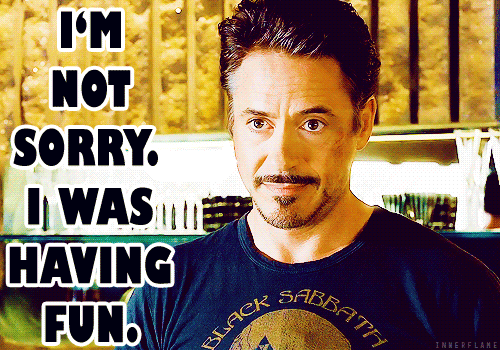
 On the Web
On the Web



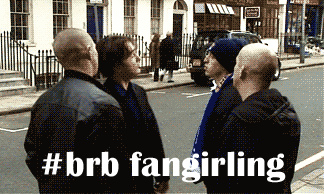


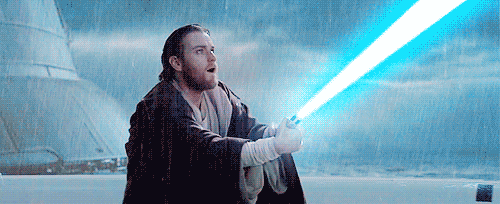




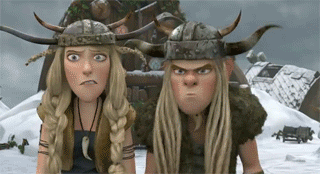
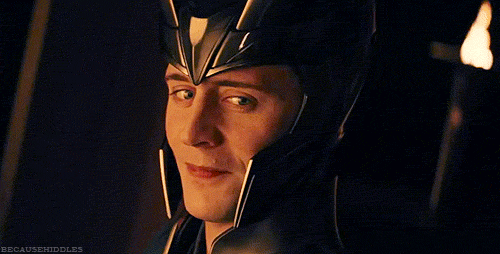


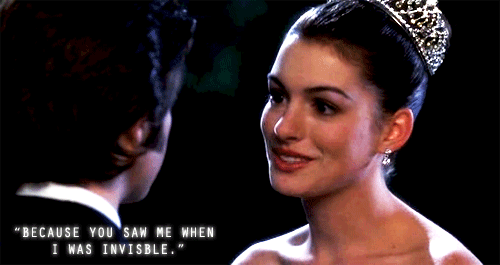


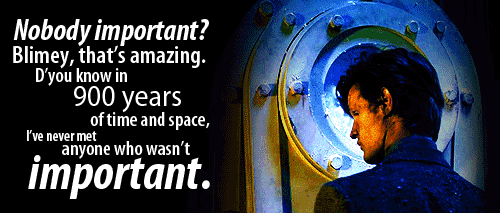








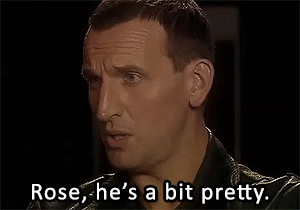


2 comments:
I adore comments! Just keep it clean and respectful...please no profanity and while I respect people's opinions and love a good argument, simply bashing my post is obviously not appreciated. :)